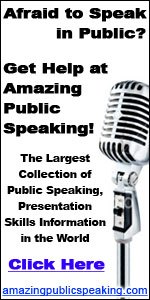Let’s face it: how we speak matters.
Whether you’re giving a presentation, having a conversation, or recording a podcast, clear articulation can make or break your message.
But here’s the thing—articulation isn’t just about pronouncing words correctly. It’s about making sure your words are understood, your tone is engaging, and your message lands with impact.
The problem? Many of us make articulation mistakes without even realizing it.
Maybe we mumble, rush through sentences, or struggle with certain sounds.
The good news? These mistakes are fixable. In this post, we’ll explore some of the most common articulation errors and share practical tips to help you speak more clearly and confidently.
1. Mumbling: When Your Words Get Lost in Translation
The Problem
Mumbling is one of the most common articulation mistakes. It happens when you don’t open your mouth wide enough or use enough breath to project your voice. The result? Your words come out muffled, and your listener has to work extra hard to understand you.
How to Fix It
- Practice opening your mouth: Try this exercise: say the sentence “The quick brown fox jumps over the lazy dog” while exaggerating your mouth movements. Feel how wide your mouth opens? That’s the energy you want to bring to everyday speech.
- Use your breath: Mumbling often happens when you’re not using enough breath to support your voice. Practice speaking from your diaphragm (the muscle below your lungs) rather than your throat.
- Slow down: Mumbling can also be a result of speaking too quickly. Slow down your pace and give each word the attention it deserves.
How to Articulate your thoughts Effectively?
How to Articulate thoughts into Words?
2. Rushing: When Speed Becomes a Barrier
The Problem
Speaking too fast is another common issue. When you rush through your words, you risk losing clarity and leaving your listener behind. It’s like trying to read a book while someone flips the pages for you is frustrating and hard to follow.
How to Fix It
- Pause intentionally: Add natural pauses between sentences or ideas. This gives your listener time to process what you’ve said and makes your speech more engaging.
- Practice chunking: Break your sentences into smaller chunks and focus on delivering each one clearly. For example, instead of saying, “I went to the store and bought some groceries,” say, “I went to the store / and bought some groceries.”
- Record yourself: Listen to a recording of your speech. Are you rushing? If so, practice slowing down until it feels natural.
Strategies to improve Public Speaking skills
3. Dropping Consonants: When Letters Go Missing
The Problem
Ever heard someone say “gonna” instead of “going to” or “lemme” instead of “let me”? That’s dropping consonants, and it’s a common habit in casual speech. While it’s fine in informal settings, it can make you sound less professional in formal or public speaking contexts.

How to Fix It
- Focus on endings: Pay special attention to the ends of words, where consonants are often dropped. For example, practice saying “going to” instead of “gonna” or “want to” instead of “wanna.”
- Use tongue twisters: Tongue twisters are a fun way to practice crisp consonant sounds. Try saying, “She sells seashells by the seashore” or “Peter Piper picked a peck of pickled peppers.”
- Enunciate deliberately: Slow down and exaggerate your consonant sounds until they become a habit.
Best Public Speaking Courses for Beginners
4. Monotone Speech: When Your Voice Lacks Energy

The Problem
Monotone speech is when your voice stays at the same pitch and volume, making it sound flat and unengaging. It’s like listening to a robot technically understandable, but not exactly captivating.
How to Fix It
- Vary your pitch: Practice speaking with a range of high and low pitches. For example, try reading a children’s book aloud and exaggerate the emotions in the story.
- Use inflection: Add emphasis to key words or phrases to make your speech more dynamic. For example, instead of saying, “I’m really excited about this project,” say, “I’m REALLY excited about this PROJECT.”
- Record and listen: Pay attention to your tone when you listen to a recording of yourself. Are you sounding monotone? If so, practice adding more energy and variation.
Become a better speaker today!
5. Mispronouncing Words: When Sounds Get Mixed Up
The Problem
Mispronunciation happens when you say a word incorrectly, either because you’re unfamiliar with it or because you’ve learned it wrong. For example, saying “nucular” instead of “nuclear” or “expresso” instead of “espresso.”
How to Fix It
- Look it up: If you’re unsure how to pronounce a word, look it up on a site like Merriam-Webster or Forvo, where you can hear native speakers say it.
- Break it down: Practice saying the word syllable by syllable. For example, say “es-press-o” instead of rushing through “expresso.”
- Ask for feedback: If you’re still unsure, ask a friend or colleague to correct you. Most people are happy to help!
Transform Your Public Speaking Skills with AmazingPublicSpeaking.com
6. Overusing Fillers: When “Um” and “Like” Take Over

The Problem
Fillers like “um,” “uh,” “like,” and “you know” can make you sound unsure or unprepared. While a few fillers here and there are normal, overusing them can distract from your message.
How to Fix It
- Pause instead: When you feel the urge to say “um,” pause instead. It might feel awkward at first but pauses actually make you sound more thoughtful and confident.
- Practice speaking slowly: Fillers often creep in when you’re speaking too quickly. Slow down and give yourself time to think.
- Record yourself: Listen to a recording of your speech and count how many fillers you use. Then, practice reducing that number over time.
7. Ignoring Nonverbal Cues: When Your Body Doesn’t Match Your Words

The Problem
Articulation isn’t just about what you say. It’s also about how you say it. If your body language doesn’t match your words, your message can get lost. For example, saying “I’m excited” with a flat tone and no facial expression sends mixed signals.
How to Fix It
- Match your tone and body language: If you’re saying something positive, smile and use an upbeat tone. If you’re discussing something serious, use a calm tone and steady eye contact.
- Practice in front of a mirror: Watch yourself as you speak. Are your facial expressions and gestures aligning with your words?
- Get feedback: Ask a friend or colleague to observe your nonverbal cues and give you honest feedback.
Final Thoughts
Clear articulation is a skill, and like any skill, it takes practice.
The good news? Every mistake is an opportunity to improve. Whether you’re working on mumbling, rushing, or mispronouncing words, the key is to be aware of your habits and take small, consistent steps to fix them.
So, the next time you catch yourself making one of these common mistakes, don’t stress. Instead, see it as a chance to grow. With a little effort and a lot of practice, you’ll be speaking clearly, confidently, and effectively in no time.
What’s your biggest articulation challenge?
Do you mumble, rush, or struggle with certain sounds?
Share your thoughts in the comments below. I’d love to hear from you!
P.S. If you found this post helpful, don’t forget to share it with a friend who could use a little articulation boost!
Disclosure: If you click on the affiliate links provided in this article and purchase the product, I will receive a commission from the company of the product. You will not pay anything extra for your purchase. You can read the affiliate disclosure for more information.





8 thoughts on “Common Articulation Mistakes And How To Fix Them”
This has brought back some memories for me.
I went to school with someone who really struggled with their speech, and when I look back, it was probably one of the articulation issues you talked about here.
I always remember how hard it was for him, especially back in the day when things like this were not really talked about or supported. Sadly, it made him the target of jokes, and as we know, kids can sometimes be cruel.
I really hope he got the help he needed later in life.
I liked reading this, even though it is not something I usually look into. It helped me understand a bit more about what people go through when they have these kinds of challenges. I learned a lot from you.
Do you think that these issues are usually seen more early these days, or do some kids still end up being missed out on?
Thanks for the post. It got me thinking.
Many thanks.
Chris
Hi Chris,
Thank you so much for sharing your experience. It’s heartbreaking to hear how your schoolmate struggled, especially at a time when awareness and support weren’t as widespread. You’re absolutely right. Kids can be unintentionally (or sometimes intentionally) cruel, and without the right intervention, these challenges can impact someone well beyond childhood.
I really appreciate your thoughtful comment, and I’m glad the post helped shed some light on these challenges. Thanks again for reading and for sharing your perspective!
Articulation is something we often overlook, yet it can make or break how we’re perceived in both personal and professional settings. One thing I struggle with is pacing, sometimes I speak too quickly when nervous, which leads to slurring or missed words. Do you have tips for training yourself to slow down without sounding robotic? Also, how important do you think it is to record and review your own speech regularly? I’ve tried it a few times and found it uncomfortable but revealing. Would love to hear your thoughts on exercises that can improve articulation naturally over time.
Absolutely agree—articulation truly shapes our impression.
Kavitha,
This post on common articulation mistakes is fantastic—I really appreciate how clear and actionable your tips are! The examples, like overusing filler words and rushing through speech, hit home for me, and your fixes feel so doable. Thank you for putting this together—it’s super helpful! I did have one question: you mentioned practicing tongue twisters to improve clarity, but I wasn’t sure how often or how long someone should practice them to see real improvement. Any advice on that? Thanks again for this great info!”
Sincerely,
Steve
Hi Steve, thank you so much for the kind words. Great question! Practicing tongue twisters for just 5–10 minutes a day can make a noticeable difference within a couple of weeks.
-Kavitha
Thank you for this clear and helpful guide! I especially appreciate how you broke down each common mistake with a direct ‘How to Fix It’ section. The tips are incredibly practical—like exaggerating mouth movements to combat mumbling and using intentional pauses to slow down. This makes improving feel very achievable. Great post!
Thank you so much! I’m glad those breakdowns were helpful. A lot of people struggle with articulation without realizing the small tweaks that make a big difference. Exaggerating mouth movements feels silly at first, but it works fast and intentional pauses are seriously underrated. If you try any of these out, I’d love to hear how they go for you!